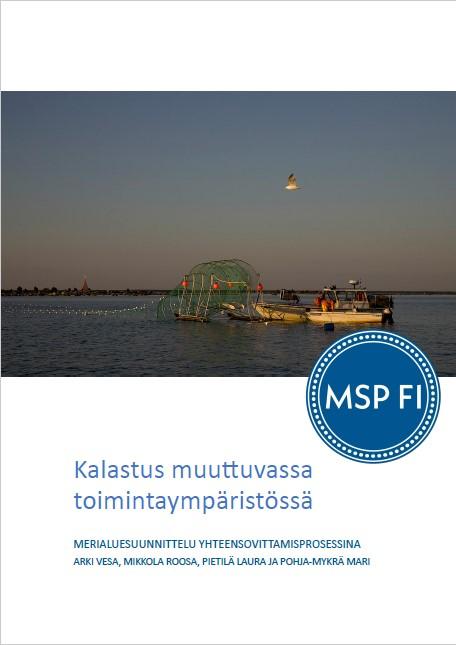Taking fisheries into account in maritime spatial planning - report now available!
During autumn 2023 and spring 2024, the Coordination of the Finnish MSP Cooperation organised a series of workshops to explore how to better promote fisheries and reconcile fisheries and offshore wind developments in maritime spatial planning. The workshops were organised as part of the Baltic Sea2land and MSP-GREEN projects. The report of the findings of the series of workshops is now available.
The three main objectives of maritime spatial planning are to promote the sustainable development and growth of the different uses of the sea, the sustainable use of the sea’s natural resources and the achievement of good environmental status in the marine environment. The fishing industry is a key maritime sector considered in MSP and has been extensively taken into account in the Finnish Maritime Spatial Plan 2030. The 2020 Maritime Spatial Plan Impact Assessment examined the plan’s ability to support the sustainable development, vitality and continuity of maritime industries. The assessment showed that this objective was not achieved in the first planning round for commercial fisheries. Fishing was the only marine sector affected by this finding. MSP took this message seriously and set out to promote cooperation and to consider how the fishing industry could be better supported by MSP in the future.
Changes in the operating environment, particularly in the Gulf of Bothnia, also prompted the organisation of workshops. The escalation of the geopolitical situation and climate change mitigation have increased political interest and project developers’ interest in the development of energy production in the Gulf of Bothnia. At the same time, a sustainable green transition must take into account traditional maritime industries such as fisheries. Reconciling renewables with traditional industries raises concerns for the future and requires active planning. This was another reason why the workshops were seen as a great necessity.
The aim of the workshops was to identify concrete measures, strengthen interaction with the fisheries sector, take account of regional specificities and increase local empowerment. The total number of participants in the six workshops in the Gulf of Bothnia, the Archipelago Sea and the Gulf of Finland was 140. Participants included fishermen and their representatives, offshore wind operators, maritime spatial planners, representatives of the ELY centres and research institutes.
The results of the workshops have now been compiled into a single set of key findings for further development, divided into four main areas:
- Supporting fisheries as part of sustainable marine food production
- Reconciling fisheries and offshore wind energy
- Supporting fisheries in maritime spatial planning
- Fishing and climate change
The work presented in the report reinforces the understanding of the main development objectives and challenges facing commercial fisheries today and in the future. The results will also support planning efforts to reconcile fisheries and offshore wind energy. The results obtained will be used as a knowledge base for the work towards an updated Maritime Spatial Plan.
The Maritime Spatial Planning Coordination team would like to thank you for your participation in the workshops!
Read the report and its main findings here: Merialuesuunnittelu ja kalastus Loppuraportti 6_2024 (in Finnish)

In the past, the workshops have also been reported under the headlines ”Need to highlight the potential of commercial fishing in the updated Maritime Spatial Plan” and ”The Gulf of Bothnia in a changing environment”.
The events were organised as part of the international projects Baltic Sea2Land (2023-2025, Interreg Baltic Sea Region) and MSP-GREEN (2022-2024, European Maritime, Fisheries and Aquaculture Fund) for the coordination of maritime spatial planning cooperation.






